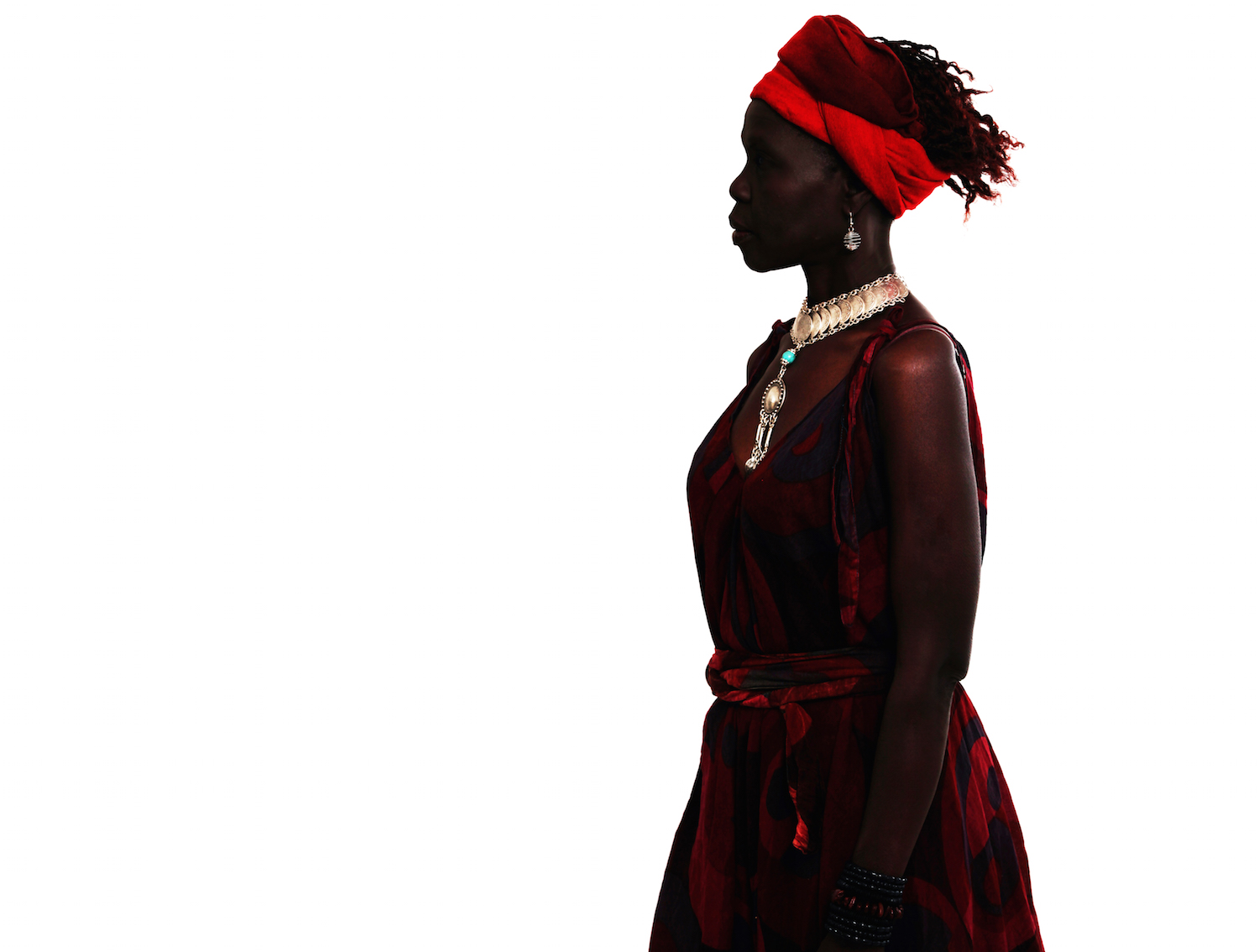Ajak Kwai

Ajak Kwai is an icon of Australian Sudanese music.
Ajak’s music is inspiring and soulful, infused with funky afro-beats representing the depth and richness of her South Sudanese roots. Her performances are filled with vibrant sounds and her distinctive voice has mesmerised audiences nationally and internationally. Singing in Arabic, Sudanese or English, Ajak conjures a vivid picture of her Dinka heritage. Music is the vehicle for her stories of extraordinary life experiences as a refugee, exiled from her home and her family. Her moving tales of exile, hope, freedom, love, and cows – beloved animals of the Dinka – in turn reflect her optimism and belief in the best of human nature.
Ajak has performed at festivals and events around the country, most recently at the 2015 Port Fairy Festival, Alice Springs’ Eye of the Storm Writers’ Festival, Melbourne International Arts Festival and The Age Music Awards.
Ajak debuts at WOMADelaide in 2016 and will follow up with the release of her third CD Of Cows, Women and War. A memoir/story book of the same name will be published in early-2016 bringing a rare and very personal glimpse into the vanishing world of the nomad Dinka of South Sudan, illustrated with photographs capturing a way of life almost destroyed by civil war.
In 2014 Ajak was awarded the African-Australia Community Female Singer of the Year and performed of her one-woman theatrical work Of Cows, Women and War at La Mama theatre (Melbourne) and the Adelaide Fringe Festival. Ajak supports numerous organisations advocating for refugees and women’s rights.